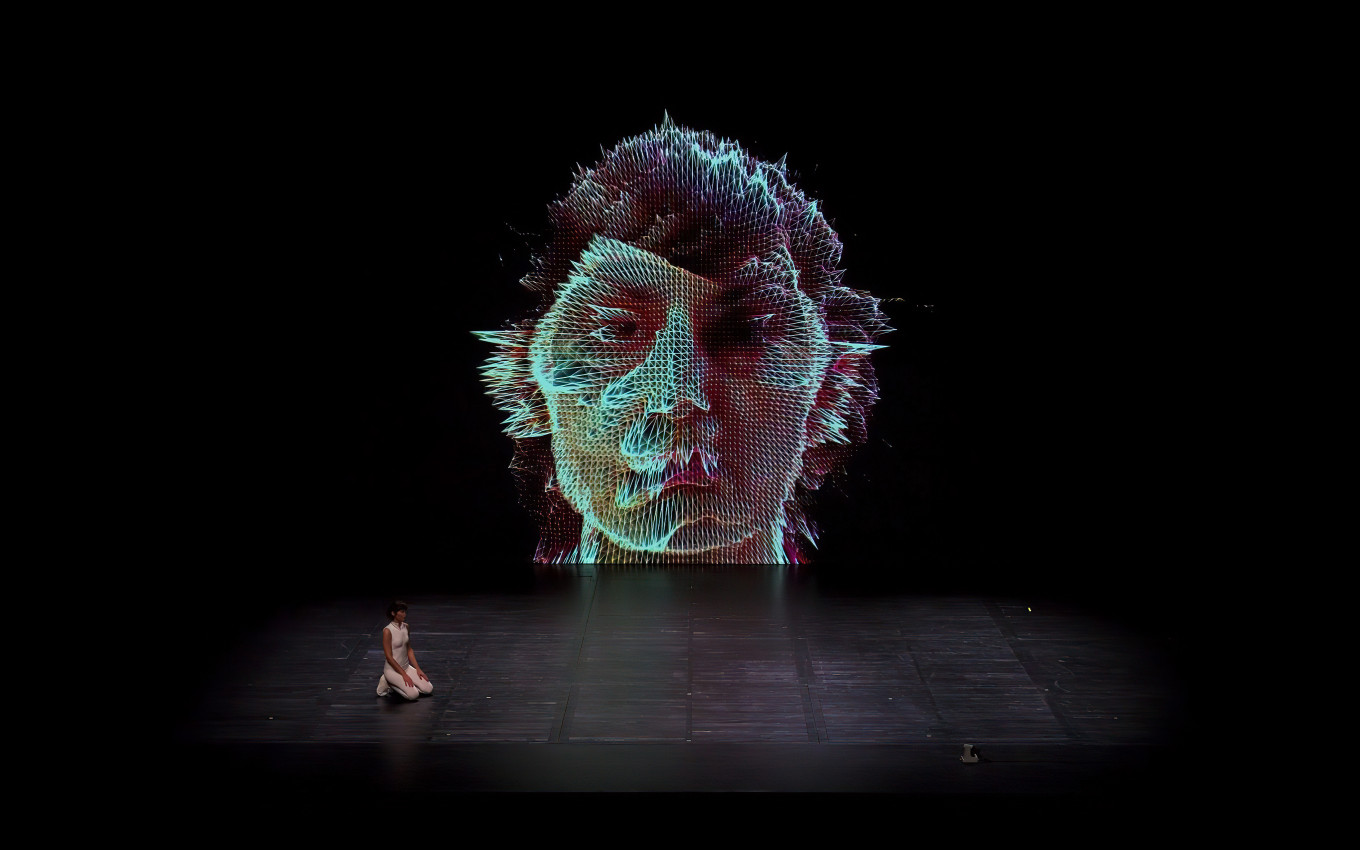Popular Reads
Top Results
Can't find what you're looking for?
View all search resultsPopular Reads
Top Results
Can't find what you're looking for?
View all search resultsAI and art: An everlasting ethical debate
The question is no longer whether we need artificial intelligence, but whether we are prepared, courageous and focused enough to use it as a tool to solve our most pressing national challenges.
Change text size
Gift Premium Articles
to Anyone
A
rtificial intelligence is currently dominating headlines. We are seeing AI mimic everything from art and lyrics to traditional crafts.
Over the past few weeks, social media has seemingly spirited away with a new feature from OpenAI ChatGPT that could generate images mimicking the iconic visual style of Studio Ghibli. The trend was so explosive that OpenAI CEO Sam Altman revealed OpenAI added 1 million users in just one hour due to the Ghibli trend. What took years of craftsmanship and cultural storytelling, now replicated in seconds, without the creators’ knowledge or consent.
Despite moments like this making global headlines, the broader impact of AI on culture remains only subtly acknowledged and rarely discussed in public dialogues and international forums. During the AI Action Summit in Paris in February 2025, where both UNESCO and Indonesia participated, the debate and attention on AI development still focused on AI governance.
But culture? Often an afterthought.
This lack of attention is dangerous. Culture is not a peripheral concern in the digital age. AI can replicate styles without consent, without clear safeguards, misrepresent traditions and strip context from centuries of knowledge. The risks are even greater for countries like Indonesia, rich in linguistic and cultural diversity.
How a country like Indonesia responds to these risks will shape not only its digital future but also set a tone for the region. Indonesia plays a crucial role in the AI discourse, being the first ASEAN country to complete a UNESCO AI Readiness Assessment in October 2024, a collaborative effort between UNESCO and the then-communication and information ministry, now the Communication and Digital Ministry.
The Indonesia AI Readiness Country Report highlighted that Indonesia faces unique challenges in securing AI from social and cultural perspectives. The rich tapestry of Indonesia's creative arts, literature and traditional artistic expressions presents another dimension requiring protection in the AI era.
Traditional batik patterns, wayang puppet narratives and regional dance forms like the Balinese legong or Acehnese saman represent intellectual property developed over centuries. Indonesian literature, from ancient palm-leaf manuscripts (lontar) to contemporary works, contains cultural wisdom that must be respected by AI systems.
These traditions are not only valuable, they are increasingly vulnerable in the digital age.
As AI tools grow more capable of mimicking traditions, the lack of clear protections becomes harder to ignore. This creates a worrisome situation where traditional artists may find their styles and techniques replicated by AI without legal recourse.
AI increases the risk of plagiarism, highlighting the need for stronger intellectual-property protections and proper artist consent. When an AI system creates batik-inspired designs or music influenced by gamelan, who is held responsible and who benefits? How do we ensure that AI augments rather than appropriates Indonesia's cultural heritage?
The current legal framework in Indonesia provides minimal provisions regarding autonomous intelligent systems in copyright law. This gap requires urgent attention as AI increasingly intersects with creative domains.
Traditional knowledge and cultural expressions (TKCE) often fall outside conventional intellectual property frameworks, requiring special protection mechanisms that acknowledge communal ownership and intergenerational transmission of artistic knowledge. Indonesia's AI strategy must advocate for the vulnerable, for underdeveloped regions, and for young Indonesians seeking access to knowledge while protecting traditional knowledge systems.
To ensure that artificial intelligence is developed and implemented safely within Indonesia’s unique social and cultural fabric, we must urgently update Indonesia’s National AI Strategy 2045.
As underlined in the Recommendations of the Indonesia AI Readiness Assessment report led by the Communication and Digital Ministry, local experts, with the support of UNESCO, identified the need to update the National AI Strategy to go beyond the current emphasis on economic potential and technological acceleration. It must explicitly integrate the social, ethical and cultural dimensions of AI development, ensuring that technology does not erode but rather uplifts our national identity.
The development of an Indonesian AI road map must address provisions that protect linguistic diversity, cultural expressions and indigenous knowledge systems. AI should not be a threat to our plurality, it should be its guardian.
We also need to strengthen cross-sectoral coordination. A national orchestrating body with a clear legal and institutional mandate must lead this effort, ensuring that technological progress does not come at the cost of cultural erosion. This body should have the authority to align government, industry, academia and civil society toward shared ethical standards and practical outcomes.
But we must remember: AI cannot live only in academic discussions, policy papers or meetings with policymakers and certain members of the elite. Because similar to art, AI should not be elitist. It must reach the people.
AI must be present in elementary classrooms in Nusa Tenggara, batik workshops around Borobudur temple, cultural centers in Papua, community health clinics in Kalimantan and rice fields in Sumatra. It must be tangible, usable and meaningful to citizens across all regions, especially those often left behind in the digital revolution.
With the right approach, AI can help build more transparent governance, combat corruption with evidence-based systems and improve the quality and reach of public services. Simultaneously, it can support the documentation, preservation and revitalization of Indonesia’s cultural assets, making sure that our next generation grows up with both digital literacy and cultural grounding.
***
Maki Katsuno-Hayashikawa is the director and representative of UNESCO Regional Office for Brunei Darussalam, Indonesia, Malaysia, the Philippines and Timor-Leste, and liaison to ASEAN. Hammam Riza is UNESCO AI Experts Without Borders, Indonesia AI Readiness Assessment lead expert, and the president of the Indonesia Collaborative AI Association (KORIKA).











